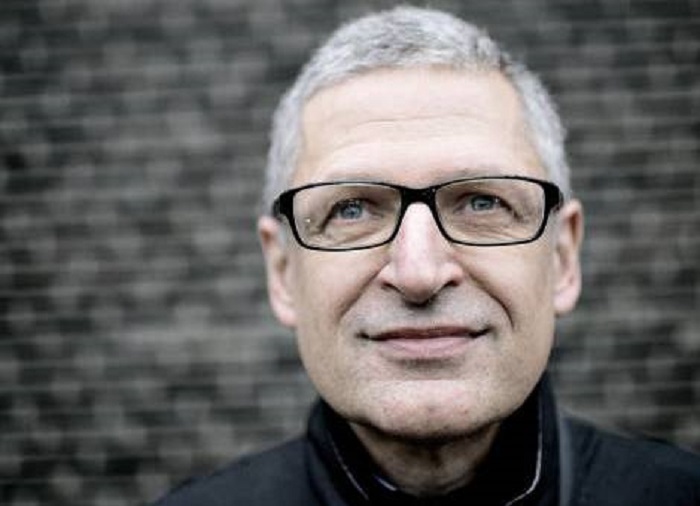The University of Cape Town (UCT) last week released a statement that explained their decision to withdraw the invitation that was extended by the UCT Academic Freedom Committee (AFC) to Flemming Rose to speak on campus for this year’s TB Davie Memorial Lecture. Rose, the cultural editor of the Danish magazine Jyllands Posten, had in 2005 published a series of cartoons depicting the Prophet Mohammed (may peace be upon him). The publication of the cartoons generated extensive debate globally, around the issues of freedom of speech, blasphemy and Islamophobia. While many hail UCT’s decision to revoke the invite as progressive, others who unpacked the statement describe it as be riddled with Islamophobia.
One commentator, who found the statement to depict Muslims as violent, was contributor to the Daily Vox, Mohammed Jameel Abdullah.
Abdullah explains that despite the long existence of freedom of speech in the form of Islamophobia that has harmed Muslim communities; the justifications for UCT’s ultimate decision to revoke the invite to Rose should be unpacked.
He says that that UCT’s official statement explaining its decision to revoke the decision paints the Muslim community of Cape Town in negative light.
A portion of the statement reads:
“We did consider the option of holding a debate with Mr Rose instead of a lecture. Our consultations suggest that many in the Muslim community would welcome this and a number of leaders indicated that in other circumstances, they would be willing to share the platform with Mr Rose and to subject his views to vigorous critique. However, Mr Rose is seen by many as a persona non grata and while most would protest peacefully against him, we believe there is a real danger that among those offended by the cartoons, an element may resort to violence.
We are convinced his presence at this time would lead to vehement and possibly violent protest against him and against UCT.
The risks are to the security and bodily integrity of Mr Rose himself; to those who will host him, and those who will attend the lecture; to the ability to hold a public lecture without total disruption; to the fragile but uneasy calm which currently exists on campus; and to the positive interfaith relations which currently mark public life in the Western Cape.”
Abdullah describing these statements as “inflammatory,” says that while he notes that Muslims may protest against issues that they do not agree with, the Muslim community of the Cape has never shown a tendency toward political violence.
“The fact that the statement goes to the affect that Muslims would harm UCT or Rose himself, I think it plays into caricatures of how people are depicting Muslims as violent, unreasonable and intolerant people.”
In response to UCT’s statement, Rose released a statement criticizing the university decision.
A portion of the response reads:
“I find it disgraceful that the Vice-Chancellor Mr. Max Price puts the blame on me instead of taking responsibility for his decision. He is afraid that some people might react in certain ways to my presence. That’s not my responsibility. If they choose to act in a way that concerns the VC, it’s their decision, not mine. The VC has to hold them responsible for their actions, not me. It’s the heckler’s veto. Mr. Price talks about ‘the harm that unlimited freedom of expression could cause don’t know any person including myself who is in favor of unlimited free speech, that’s a caricature of free speech activists. What I oppose is the kind of ‘I am in favor of free speech, but’- position that Mr. Price provides a classic example of. His approach to free speech would make it possible to ban any speech.”
While Abdullah was unaware that news of the cartoon only made the rounds four weeks after its publication, he says that he got wind of the cartoon as the story broke.
He says that the criticism against the depictions in the cartoon rose questions of freedom of speech, a fact that he believes caused the AFC to invite Rose to talk.
In light of the AFC’s invite, Abdullah says that what was interesting about the discourse following the invite was the debate between the freedom of expression and the tension of how freedom of speech can lead to the harm of the vulnerable communities.
“I think its understandable why people in the Muslim community would be outraged that the TB memorial lecture, which is supposed to be about academic freedom and free speech, would invite somebody who has been accused of what I believe is Islamophobia. This statement by UCT, [suggests] that academic freedom entails almost spitting in the face of Muslims that it should be cherishing. That is why I think UCT wanted him not to come,” Abdullah says.
Abdullah further notes that if the debate was to be conducted, he would have preferred that Rose debate prominent Muslim scholars, who are invested in free speech, and challenge him on whether his take on the meaning of liberty is in line with what our social ideals would be in terms of equality.
He asserts that in the context that Muslims currently find themselves in, it is imperative for Muslims, specifically Muslim scholars to showcase the greater Muslim community as it truly is.
“We know that in the west a lot of Muslims have been ostracized and we have been lucky that we haven’t been experiencing that issue yet. But, it would be important for us to pre-empt what our understanding of Islam is and where we stand with this…Before UCT gave us an opportunity to present ourselves, they already painted us in this international narrative of Islamophobia. So, I wondered if they consulted Islamic prominent scholars on this decision and the wording,” Abdullah continued.
VOC






 WhatsApp us
WhatsApp us 

